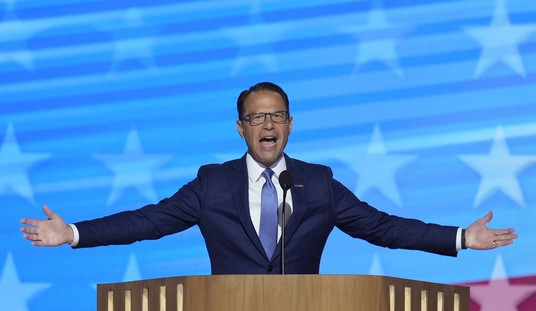The Obama administration has tried to justify its firing of Inspector General Gerald Walpin by strongly implying that the 77-year-old attorney suffers from senility. Norman Eisen, the White House lawyer who drafted a required notification to Congress, accused Walpin of being “confused and disoriented” at a May 20th meeting of the Corporation for National and Community Service. Byron York has done some digging, and discovers that the administration’s problem was that he was anything but confused and disoriented:
Walpin’s objections were the subject of a now-controversial May 20 meeting in which Walpin, to use his term, “lectured” the board on what he believed was its mistake in approving the Johnson settlement. On the morning of the meeting, the Sacramento Bee reported that a man named Rick Maya, who worked with Kevin Johnson in the St. HOPE project, claimed that Johnson’s emails had been deleted during the time of Walpin’s investigation. The Maya news suggested that there might have been obstruction of justice in the St. HOPE affair, and Walpin used it to drive home his point that the board should have let his investigation stand.
It appears the discussion of the St. HOPE matter was a turning point not only in the May 20 meeting but in Walpin’s tenure at the Corporation. In a recent interview, a Republican member of the Corporation board told me that Walpin told board members at the meeting that he wanted to issue some sort of public statement to the effect that there should be more investigation of the St. HOPE matter. “He said, ‘I feel so strongly about this that today I am going to issue a statement to the press calling for further investigation,'” the member said, recalling Walpin’s words. “The board members all caught that. Several of us wrote down that he was going to be issuing a statement to the press that afternoon.”
It was a distressing scenario for the board. As a favorite program of Barack and Michelle Obama, AmeriCorps was enjoying a higher profile than ever before. The Corporation also stood to receive vast amounts of new funding from the $5.7 billion Edward M. Kennedy Serve America Act, which would triple the size of AmeriCorps. And in the midst of that, here was the agency’s inspector general saying he might re-open an investigation into an embarrassing episode involving hundreds of thousands of mis-spent dollars and a politically prominent supporter of the president. …
Later in the meeting, members questioned Walpin about his intentions. It was at that point that they say Walpin became confused and disoriented. But whatever Walpin’s demeanor, it appears that board members, of both parties, were worried about the possibility of embarrassing new revelations involving a sensational case they thought had been closed. After the meeting, the board began an accelerated effort to remove Walpin, compiling an informal list of grievances against him — he could be difficult, he telecommuted, he was somehow disabled — that the White House would ultimately cite as cause for his firing. But there is no doubt that, whatever the other reasons, the board feared that a revival of a scandal they thought was in the past would be embarrassing to the newly-prominent AmeriCorps.
An Inspector General could be “difficult,” and the CNCS thought that a reason for termination. Aren’t they supposed to be? IGs operate outside the chain of command in order to ensure transparency and to expose corruption. In fact, they exist to keep political patronage questions out of corruption and incompetence investigations, and it looks from this account that Walpin did his job too well for the CNCS and the Obama administration.
Walpin has more supporting evidence of his ability to function. His colleagues in southern New York, including Democrats and Obama supporters, wrote an open letter to the White House and Congress vouching for his integrity and his abilities. The letter has 147 signatures in support of Walpin, including former Attorney General Michael Mukasey and Bernard Nussbaum, Bill Clinton’s White House counsel.
This looks more and more like a political hack job on Walpin, the equivalent of Clinton’s Travelgate scandal, only in service to keeping corruption hidden in Americorps on behalf of Obama’s political cronies. It’s positively Nixonian, and it’s doubly sad that only Byron York and the Washington Examiner among the national media seem interested in pursuing it.







Join the conversation as a VIP Member